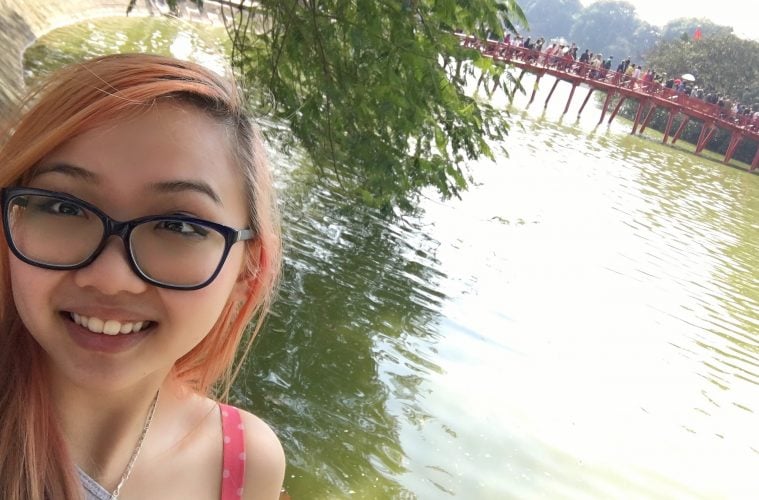One of the most frequently asked questions I receive is “Where are originally from?”. The answer is that I was born in Vietnam. To celebrate International Mother Language day, I want to share with you some fun facts about Vietnamese culture.
Let’s start of with some fun facts. Did you know that Vietnamese is the 5th most spoken language in the United States? It beats Italian, Korean, Arabic and Cherokee. It’s written using latin script, and although it’s the official language of Vietnam, it’s only been recognised for 150 years.
Vietnamese is a tonal language, meaning depending on the tone and pitch of the word, the meaning changes. This makes the language seem very sing-song to non-natives. There are 29 letters in the alphabet however we don’t have the letters F, J, W or Z. Which is always funny for me, since my sister’s name begins with a J and everyone in Vietnam pronounces it using ghe.
The word for blue and green is the same, xanh, and we differentiate them by following the word xanh with either “leaf” for green or “water” for blue.
I often think that Vietnamese only has 1 syllable words, but that’s sort of not true. Each word is only one syllable, but it often takes several words to describe 1 thing. For instance, the word Vietnam is in fact spelt Việt Nam, made up of the words Việt meaning Vietnamese people and Nam meaning south. As in Vietnamese people of the south – this name was given to Vietnam by Emperor Gia Long, back when Vietnam was still a country of many tribes of people.
Vietnamese Culture
There’s so much about the culture that it would take a whole book to write down. I’ve decided to talk about two aspects of Vietnam that I think define the culture .
Religion and superstition I believe play a large part in how people live their daily lives. It plays on simple decisions to important ones, and it’s good for everyone to understand just how deep the two run.
Ancestors and how the Vietnamese remember their dead is the other very important aspect of the culture. I think this topic showcases a more personal side of Vietnamese culture. It’s something that I have always considered brought the Vietnamese closer together, in a way I haven’t seen in the west.
Religion and Superstition
The first topic I want to discuss is religion and superstition. Vietnam is a very superstitious country. Growing up, superstition and religion meant the same thing for me. Many people believe that the religion of Vietnam is Buddhism, or perhaps Taoism with a mix of Confucianism. Most Vietnamese people believe in a mix of all three. Vietnamese folk tales play a large part in how we pray and worship, and a lot of that forms our superstitions too. Hence why I find the two ideas interchangeable.
The Vietnamese are highly superstitious people. We’re known for planning military action around the astrological star signs, even during the Vietnam War. Couples who are born in “incompatible” zodiac signs won’t marry, or face intense disapproval from their families.
But it’s not all bad. I personally love the superstitious, there’s always a sense of magic and hope and luck to it. My mother is a very popular fortune teller in Vietnam, and I grew up to her reading my star signs and weaving fantastic stories of great things she predicted I would do. For those who love stories and magic, you’ll love Vietnam.
Ancestors
We take our dead very seriously. Those who pass on are worshipped by the family, given offerings and prayed for throughout the year. It’s a part of our culture I miss in the west.
When someone close to you passes away, you put a photo of them up in the family shrine, where we pray to the household Gods. There, we burn incense for them daily, along with the Gods, and they share the food and money offerings too.
At special points the the year, there are holidays made to celebrate your ancestors, and everyone will go to the graves to visit their loved ones.
My biological father passed away when I was 3 years old, but whenever I go home to Vietnam I can see his photo and pray at his shrine. I’m not religious, but growing up it I felt very close to a person I never really knew. My family still show the love and respect they had for him before, and it brings me a lot closer to all of them.
My aunty and cousins who have passed away are also remembered, and I feel there’s a lot more closure to death in Vietnam than the west. Perhaps it’s because we think about them everyday, and share their loss together in a way of celebration. We tell each other they are in heaven, and we send them gifts to keep a connection.




